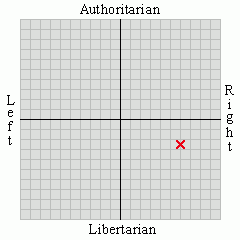This post will examine British affinities with Europe and the United States of America, and how the British public sees itself in relation to Europe and other member states, in order to establish the extent of Euro-scepticism in Great Britain. It will also consider the erosion of the fundamental doctrine of parliamentary sovereignty, the ‘special relationship’ with the US, the inability to identify benefits of membership as well as the circumstances of Britain’s accession to the European Union to argue that Euro-scepticism is founded upon a perceived cultural threat. It is important to firstly consider national identity in Britain to establish the extent of Euro-scepticism in relation to other European nations. According to a study conducted by the European Commission into the Europeans and their cultural values, the majority of British participants recognised the existence of a ‘European culture’, however only as a means of distancing themselves from Europe, as integration is perceived as a threat to national identity. Previous Eurobarometer surveys have revealed that 28% of British participants felt their greatest affinity lay with the United States, in contrast to an EU-15 average of 17%. In addition, 20% of British respondents declared that their greatest affinity was with Ireland. Arguably therefore, the British public identifies itself more closely with the English-speaking world than its European neighbours. Moreover, the British are the least likely of all EU nationalities to feel attached to Europe, with only 37% feeling very or fairly attached in 1999. In addition, 67% of Britons declared that they felt British only, with 30% feeling to some extent European. This contrasts with the EU-15 average of 52% of respondents stating that they felt to some extent European. However, the study also shows that 61% of both the Swedish and Finish respondents do not feel European, therefore indicating the strength of the national identities in these countries.
The Scandinavian member states and Britain were also the least satisfied with democracy in the EU. However, it can be argued that this may not provide an accurate explanation for British Euro-scepticism as 65% of Swedish citizens and 67% of Danes believe that democracy is the characteristic which best represents their respective countries, and may therefore feature as a more prominent reason for Euro-scepticism in those nations, rather than in Britain, where a mere 19% of respondents declared democracy as the most important value from a personal perspective; second lowest in the EU in 2003. Instead, the most important value to British citizens was the rule of law, which was selected by 28% of participants. Francis Jacobs defines the rule of law as a fundamental value whereby all acts of public bodies are subject to review by the courts. He acknowledges that prior to EU accession there were no limits to the sovereignty of Parliament as there was no opportunity for judicial review. Furthermore, he argues that the European Community system can improve the domestic legal systems of the member states by providing, or requiring the state to provide additional remedies which may prove effective. The system of dialogue developed between national courts and the European Court of Justice through the preliminary reference procedure under Article 234 EC may also be beneficial as it allows private individuals to influence the development of Community law. However, despite the doctrine of supremacy of EC law requiring Britain to depart from its concept of parliamentary sovereignty, David Baker has argued that the symbols of nation-statehood remain rooted in the old nation-state structures, especially in Britain where parliamentary sovereignty “remains the only widely accepted legitimate source of sovereignty to important sections of the political class, socio-economic elites and citizens alike.” He argues that the strength of belief in sovereignty in Britain is extraordinary by contemporary European standards and that despite it being a factually outdated concept it is still considered to be a symbol of ‘Britishness’ across the political spectrum. It has therefore been to the advantage of the Conservative Party to associate its deregulatory economic and globalist preferences, which often oppose the social market bias of the Single Market, with a strong commitment to British nationalism, thereby allowing them to portray the sovereign British polity as being under threat. Research conducted into hostile attitudes towards European integration indicates that perceived threats to the national identity reduce enthusiasm for the EU by approximately ten percentage points.
Furthermore, it has been said that the European states that had chosen to break from the Roman Catholic Church and adopt Protestantism as the national religion are more opposed to European integration than Catholic member states, due to the strong linkage between their identities and the sovereignty of the nation state and the adoption of a dissenting religion. This may therefore explain why opposition to membership of the EU was most prevalent in Britain and the Scandinavian countries.
It is therefore apparent that Britain and the Scandinavian countries feel less European than any other member states and that this correlates with antipathy towards membership in these nations. Moreover, further confirmation of the British public’s greater affinity with the English-speaking world can be found in the geographic location of citizens’ interests in politics. Only Britain and the Netherlands were more interested in the political affairs of countries beyond Europe than they were in member states of the EU.
However, it has been argued that Euro-scepticism in Britain is unique as it is often characterised by a “cultural wariness to all things European.” Robert Harmsen states that although parallels may be drawn between Britain, the Scandinavian member states and even Switzerland, the cultural sense of otherness in Britain is further amplified by the interactions between the political parties and the press, however neither can be held responsible for creating it. It can be said that the adversarial and confrontational political culture in Britain encourages the fostering of a narrower national interest in which a concept such as sovereignty is regarded indivisible. On the other hand, the coalition governments of many European states, and their necessity to reach compromises to appease a broad spectrum of views, favour an understanding of pooling sovereignty. However, it is not simply a cultural or doctrinal matter, as the conditions surrounding Britain’s accession to the EU must also be considered, as initial experiences often establish the course of subsequent domestic discourse. Britain sought to join the EU in a time of national economic hardship, which some economists believed was due partly to trade patterns which were orientated towards the Commonwealth rather than the industrialised countries of Western Europe. In 1948, 40% of British exports were sent to the Commonwealth. This trade relationship was also considered as one to be maintained and developed as Britain believed that the Commonwealth would provide it with a better opportunity to have its views amplified on the world stage, even following the emergence of the US and the USSR as superpowers. Public opinion was also in favour as many British people had relatives in former dominions and the empire was a basis of national pride. Today, 70% of British citizens are proud of the fact that Britain once had an empire.
Another psychological and cultural barrier to accession is the special relationship between Britain and the US. Prior to accession, the political class was eager not to jeopardise the strong ties Britain shared with the dominant world power, and was therefore convinced that membership of a European grouping was unnecessary. It is therefore apparent that the European project required Britain not only to depart from its traditional institutional doctrine of parliamentary sovereignty, which was considered to be part of national identity, but also to disregard historical pride and re-orientate its trade to countries with which it does not share a common language or ancestry, as would be the case if it had continued to trade predominantly with countries such as Canada or Australia. Britain’s emotional affinity to the US and the Commonwealth lead Charles de Gaulle to refuse British accession to the Union on two occasions, as he feared that Britain and the US together would displace French domination of the European project. Britain too was concerned that the success of the EU without Britain as a member would lead to the Union eventually replacing it as the main trade partner of the US. Stephen George acknowledges that the attitude of British policy makers to the European project was often arrogant due to the perception that European countries were politically and economically unstable. Furthermore, he states that the government was pragmatic in its reasons for membership, unlike the leaders of other member states, and that following accession, a strong commitment to national identity “remained the basis for the electoral appeals of politicians in all parties”, and that moreover, the special relationship with the US was in no way compromised.
In addition to these cultural and historic factors, the British public cannot easily identify the benefits of membership. Both Swedish and British citizens feel their countries have benefited least from EU membership. This also correlates with distrust in the EU, with merely 20% of British and 21% of Swedish respondents saying they trust the Union, which may be due to Britons having the lowest perceived knowledge of the Union than any other EU nationality. Inevitably, the consequences of this lack of understanding and trust may fuel apathy, which in turn may prove detrimental to the country’s participation in the EU, as in the latest recruitment round for European Commission jobs a mere 2% of applicants were British, whilst only one hundred applications for an internship at the Commission were from British graduates, in contrast to 483 French applicants and 890 Italian applicants.
In conclusion, it can be said that the British public is amongst the most Euro-sceptic in the EU, with the Swedish public often matching or surpassing its Euro-sceptic attitude. However, the fact that the British public declares its greatest affinity with the US, whereas Swedish citizens declare theirs with other Scandinavian countries, reflects a Euro-scepticism deeply rooted in the political and cultural identity of the nation which rejects continental Europe for something which may seem culturally more familiar. Aware of such a strong belief among the public, Tony Blair has argued that patriotism should be reflected in recognising the interdependence of the modern world, rather than retreating into isolationism, and that moreover, there was no inconsistency between patriotism and being pro-European. However, although Gordon Brown acknowledges and advocates the creation of “a truly global society”, he has not stated that such an internationally interdependent community requires a redefinition of patriotism, unlike Blair, who adopted a similar rhetoric in an attempt to convert Euro-sceptics, claiming “the patriotic national interest is to be engaged in alliances of which we are a member.” Furthermore, Queen Elizabeth II on a state visit to the US declared, “We can celebrate the close and enduring associations which thrive between the United States and the United Kingdom at every level: be it government or corporate, institutional or personal.” However in reality, the same is more visibly true in relation to the EU, as the national concepts of sovereignty, government, law and even human rights have been moulded by the EU institutions, the supremacy of Community law, the judicial activism of the European Court of Justice and the process of Europeanisation. Furthermore, the Four Freedoms grant British citizens many rights in Europe which they would not readily enjoy in the US. Nevertheless, Euro-scepticism is likely to prevail in the British public due to the cultural similarities it shares with the English-speaking world, and in particular the US, whose influence through the special relationship and role as a cultural hegemon can only direct the national identity away from the continent, and thereby strengthen the exceptionalist consciousness in relation to other member states.
Monday, 13 April 2009
Is the British public more Euro-sceptic than other EU nations?
Labels:
America,
Britain,
Commonwealth,
European Union,
Euroscepticism,
Scandinavia
Subscribe to:
Post Comments (Atom)



No comments:
Post a Comment